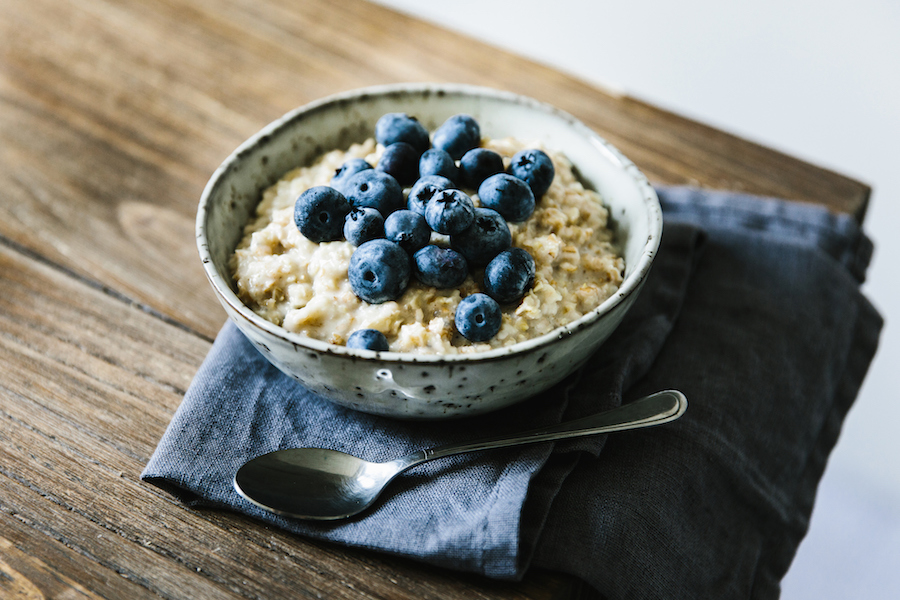Foods that affect fertility
Foods That Affect Your Fertility
Share the post
Share this link via
Or copy link

Gettyimages.com/pregnant woman on a couch
With shows about teen pregnancy and so many statistics about unwanted pregnancy, most women just worry about becoming pregnant when they’re not yet ready to have a child. Few women think that, when they’re finally up to the challenge of being moms, they won’t be able to conceive. You might take the pill or have an IUD for years (or decades), always feeling like you’re resisting pregnancy. So, if the time comes when you actually want to have a baby, but you can’t get pregnant, it can throw you for a loop. Approximately 11 percent of American women of reproductive age struggle with infertility issues at some point. And within couples struggling to conceive, one third of the time, the problem stems from the female. If you’re up against these odds and trying to have a baby, there are things you should know, like these foods that affect fertility.

Gettyimages.com/beans
Love MadameNoire? Get more! Join the MadameNoire Newsletter
We care about your data. See our privacy policy.
Beans and lentils: Good
Beans and lentils are rich in iron and, according to some studies, having a diet high in this nutrient can reduce one’s chances of infertility. Black, pinto, kidney, and butter beans are all high in this nutrient.

Gettyimages.com/soda Cola is pouring into glass
Soda: Bad
Soda doesn’t tend to be good for you health any which way you look at it, but it could also be affecting your chances at becoming pregnant. Research suggests it could be because soda causes inflammation in the body.

Gettyimages.com/Plastic bag of mandarines on a white background
Citrus fruit: Good
Citrus is high in vitamin C, which actually helps your body better absorb the aforementioned, all-important iron. So add some grapefruit, tangerines, or oranges to your diet.

Gettyimages.com/bottled water
Bottled beverages: Possibly bad
Frightening research has found that drinking bottled beverages containing Bisphenol-A can have long-term effects on fertility.

Gettyimages.com/muesli cereal with raisin, currant, mix nut, coconut
Enriched cereal: Good
If beans aren’t your thing, then you can get iron from enriched cereal, as well as long-grain rice and whole grains. If you’ve been looking for a reason to have breakfast, fertility may give you one.

Gettyimages.com/swiss cheese
Low-fat dairy: Bad
Though low fat dairy may typically be a good choice for those trying to lose weight, it isn’t a smart choice for women hoping to become pregnant. In fact, research has found that eating a lot of low fat dairy foods can increase the risk of infertility.

Gettyimages.com/bowl of ice cream
High fat dairy: Good
Well, naturally given the last stats, if you want to get pregnant, you should be consuming high fat dairy. Good sources of the stuff include whole milk, whole fat yogurt, and real, non-skim cheese.

gettyimages.com/Variety of sushi on a tray with chopsticks and soy sauce on stone background
High mercury fish: Bad
You know not to have the stuff when you’re pregnant but what about when you’re trying to become pregnant? Well, if you’re trying, then there could very likely come a time when you are pregnant and don’t yet know it. So don’t risk that by eating high mercury fish.

Gettyimages.com/Asian Tofu Lettuce Wrap with Hoisin Sauce, Carrots and Edamame
Tofu, tempeh, and beans: Good
What do these things have in common? They are vegetarian sources of protein. Replacing one animal protein with a vegetarian protein each day could help increase one’s chances of pregnancy.

Gettyimages.com/spaghetti pasta
Pasta and sliced bread: Bad
Fast-digesting carbs like white pasta and bread can actually lead to irregular ovulation, which obviously makes it difficult for a woman to conceive.

Gettyimages.com/oatmeal
Brown rice and rye bread: Good
Instead of quick carbs, reach for slow-digesting carbohydrates like brown rice, rye bread, steel-cut oatmeal, quinoa, and oat bran.

Gettyimages.com/Cropped shot of a young married couple cooking together in the kitchen at home
Saturated vegetable oil: Bad
Saturated vegetable oils can negatively affect one’s cholesterol levels, and bad cholesterol and infertility have been shown to have a connection. So skip saturated vegetable oils.

Gettyimages.com/olive oil
Olive oil: Good
Unsaturated vegetable oils, however, can help your heart health and fertility. Choose olive oil, canola oil, sunflower oil, sesame oil, and soybean oil instead.

Gettyimages.com/muffins
Packaged baked goods: Bad
Trans fats also have a negative effect on your cholesterol, which, as we now know, can cause fertility issues. So stay away from pre-packaged baked goods as these tend to be loaded with trans fasts.

Gettyimages.com/Portrait of happy couple toasting wine glasses
Alcohol: Bad
We know that you shouldn’t drink while you’re pregnant, but what about those nights when you’re trying to loosen up with your partner and become pregnant? You may want to stay sober then, too, studies suggest.





